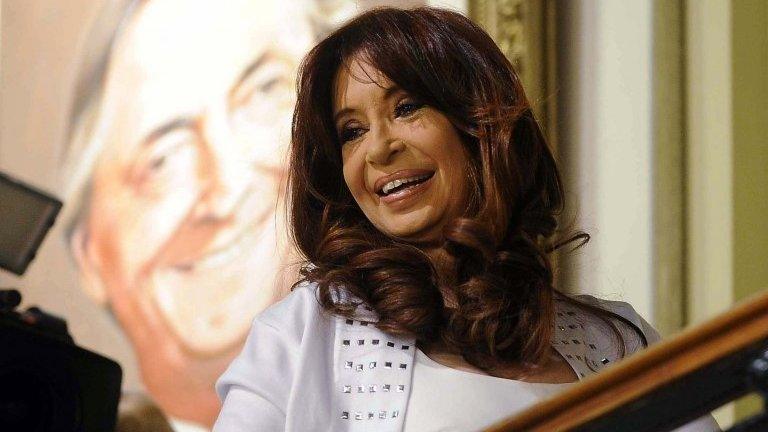Argentina's Macri faces no shortage of challenges
- Published
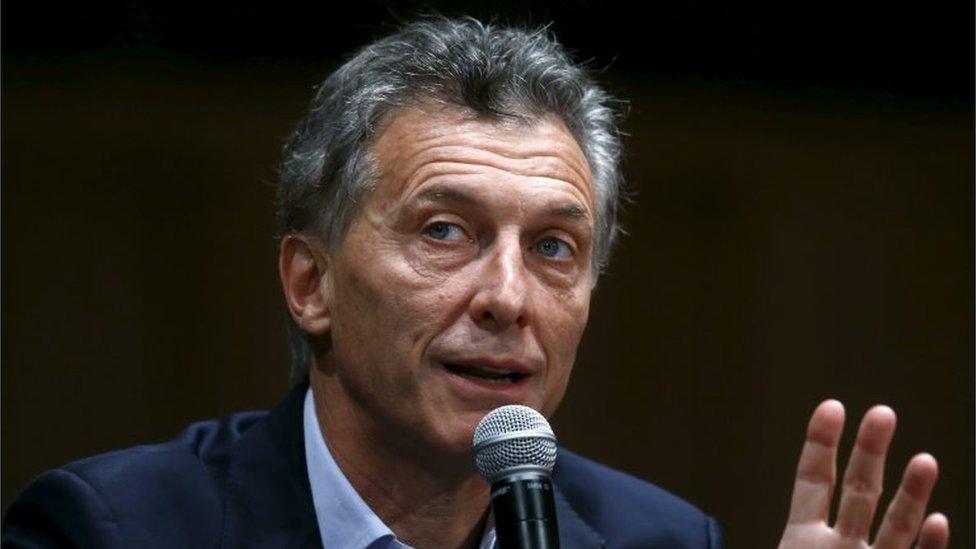
Mauricio Macri gave a news conference just hours after being elected
The most striking thing about Mauricio Macri's first news conference as president-elect of Argentina was, well, that there was a press conference at all.
Argentine journalists have become accustomed, after eight years under Cristina Fernandez de Kirchner's presidency, to getting little or no access to the person at the top.
For all her appearances at inaugurations of public works or rousing speeches before the Peronist party faithful, President Fernandez de Kirchner rarely exposes herself to scrutiny and even less so to the kind of open press forum that enables journalists to question and probe the work of her government.
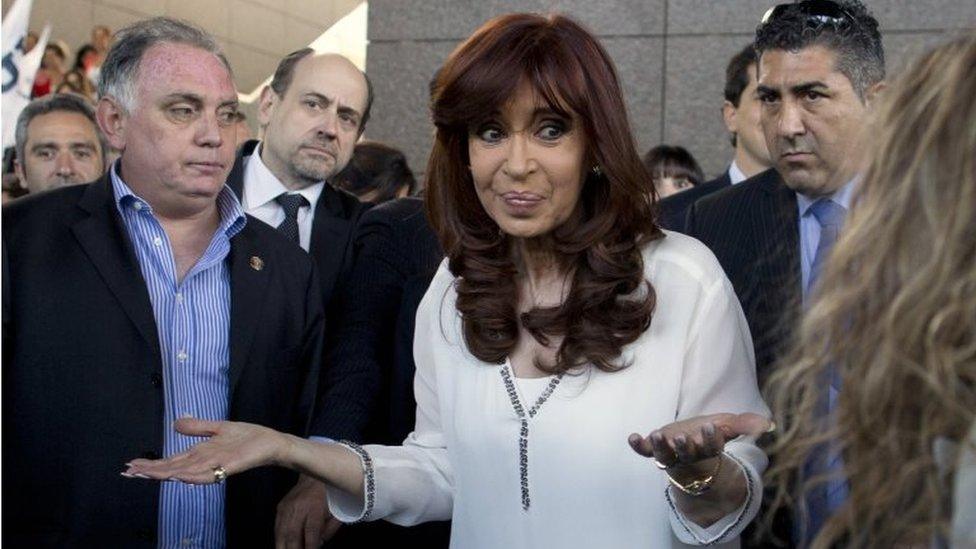
Cristina Fernandez de Kirchner often took part in openings and events but rarely gave news conferences
Not that Mr Macri was particularly illuminating or generous with detail, particularly when asked about the specifics of his plans to turn around Argentina's precarious economy.
But at least he made the effort to engage and respond to questions.
Restoring confidence
So what have we learned in the first few days about the man who defeated a political movement that has dominated Argentine politics for decades?
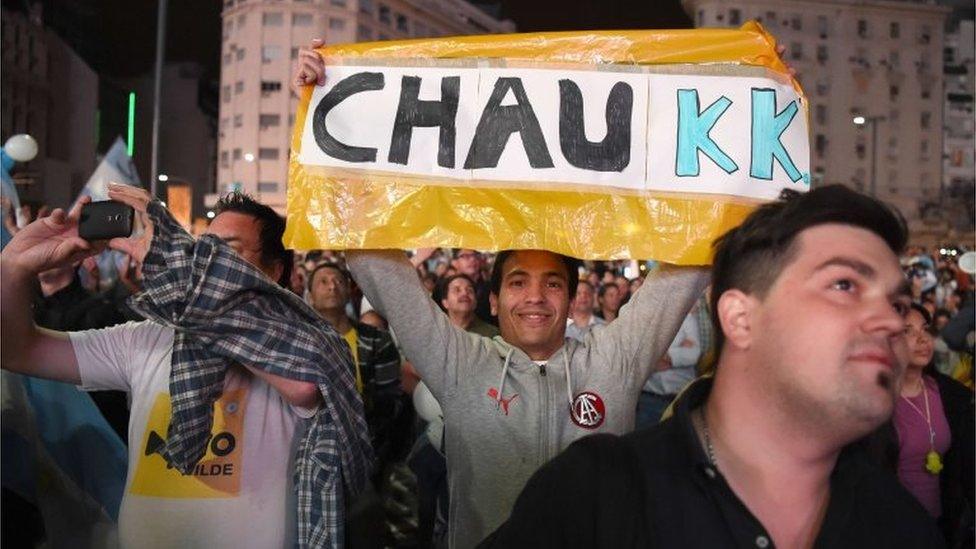
Supporters of Mr Macri celebrated the end of the Kirchner era
The outgoing mayor of Buenos Aires and soon to be president of Argentina repeated on more than one occasion that he could not yet expand on the detail of his economic plans until he was able to ascertain exactly how critical the situation was.
The current administration has been repeatedly accused of being less than transparent about key statistics like the real rate of inflation or exactly how much liquid reserves remain in the Central Bank coffers.
Correcting those anomalies and introducing measures to restore international confidence in the Argentine economy are likely to be some of Mauricio Macri's first big policy initiatives when he assumes the presidency on 10 December.
Deep divisions
To that end we learned that, rather than appointing a single minister for the economy, there will be a team of no less than six ministers responsible for the economy brief.
This historic election reflected the deep divisions in Argentine society, with barely three percentage points ultimately separating Mauricio Macri and the defeated Peronist candidate, Daniel Scioli.
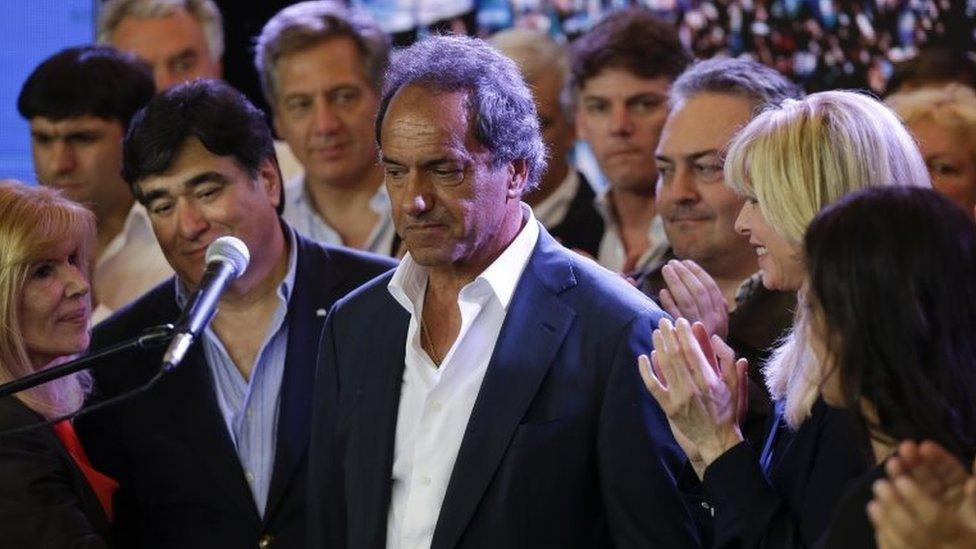
Daniel Scioli had won in the first round but lost to Mr Macri in the run-off
While the victor's well-heeled and middle-class will be expecting a more liberal economic climate, those less well-off working class Argentines who voted for Mr Scioli will also be hoping the new administration protects the welfare programmes introduced by the Fernandez de Kirchner government.
Mr Macri indeed promised to be a "president for all Argentines", knowing the powerful labour unions and sometimes volatile Peronist youth movements will become restless if economic "reform" turns out to mean across-the-board "cuts".
There is clearly not much love lost between the man heading into the hot seat and the woman who has governed Argentina in her own unique style for the past eight years, her reputation and legacy damaged by an election result few would have predicted only a couple of months ago.
Ties that bind
Without saying so directly, Mr Macri made it abundantly clear that Cristina Fernandez de Kirchner's combative and sometimes bellicose style had damaged Argentina's image abroad.
Rebuilding relations with neighbours in Latin America and allies further afield, would be another job at the top of his "to do" list.
The most interesting of those relationships is with Venezuela.
Its leftist, revolutionary president, Nicolas Maduro has been one of Cristina Fernandez de Kirchner's closest allies in the region - part of a populist alliance that included Bolivia and Ecuador, (but less so Chile and Brazil with whom the outgoing president has not always been on the closest terms)
Mr Macri is preparing to realign those alliances, hinting that he might seek to suspend Venezuela from the regional trade bloc Mercosur, over its "lack of democratic transparency".
Observers noted with some interest that one of the most prominent figures at Sunday night's victory rally was the wife of the jailed Venezuelan opposition leader, Leopoldo Lopez.
With legislative elections in Venezuela looming, the result in Argentina could have wider repercussions.
Full in-tray
Back on the domestic front, those of us who have spent many hours covering the case of the death of the special prosecutor, Alberto Nisman, have been intrigued by Mr Macri's vow to keep the case alive.
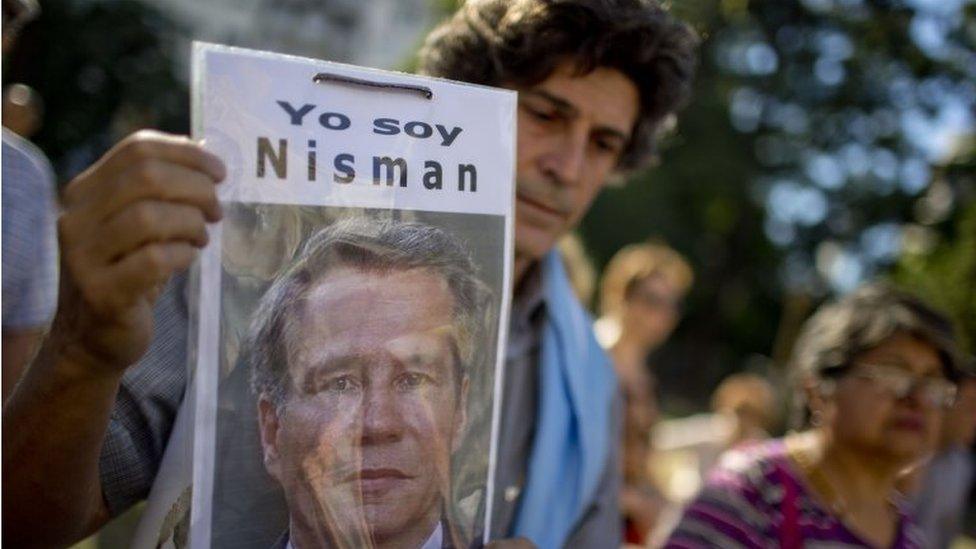
The death of Alberto Nisman shocked Argentines, many of whom believe he was killed
Mr Macri again indirectly accused the outgoing administration of trying to wrap up the investigation and conclude that Mr Nisman killed himself - rather than the widespread view in Argentina that he was murdered.
Less clear yet is what will be Mr Macri's stance on social and moral issues, including gay marriage, abortion and the continued pursuit of human rights abuses committed under Argentina's military rule from 1976 to 1983.
At his victory rally, Mauricio Macri danced like a teenager on stage without, apparently, a care in the world.
With such a full and complicated in-tray, Mr Macri is unlikely to be impersonating his beloved Freddie Mercury, the former lead singer of Queen, again for quite some time.
- Published20 November 2015
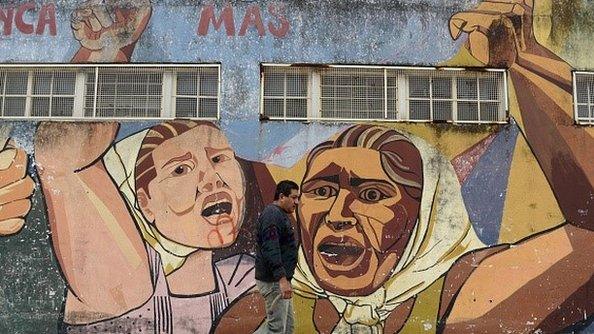
- Published20 November 2015
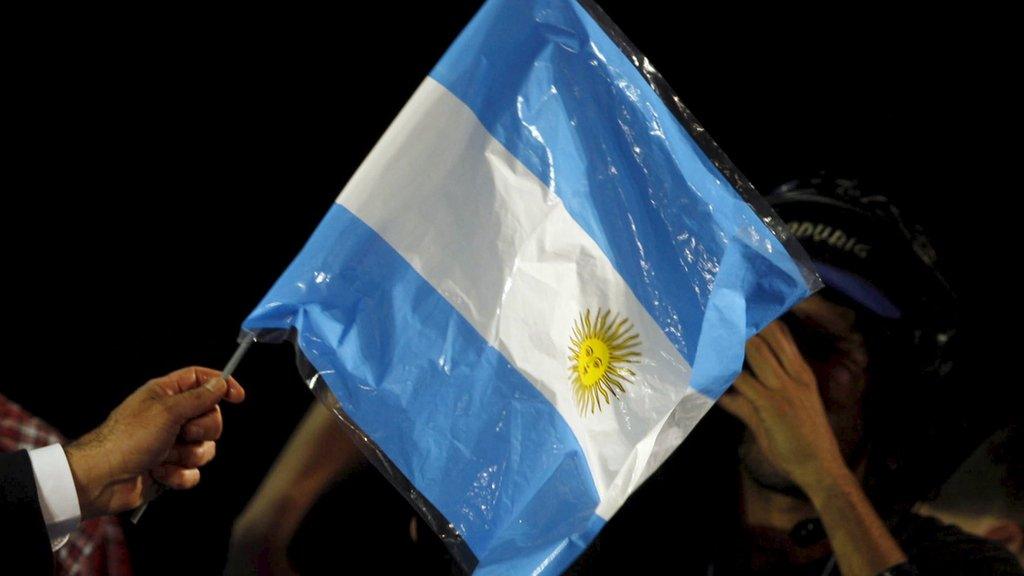
- Published19 November 2015
